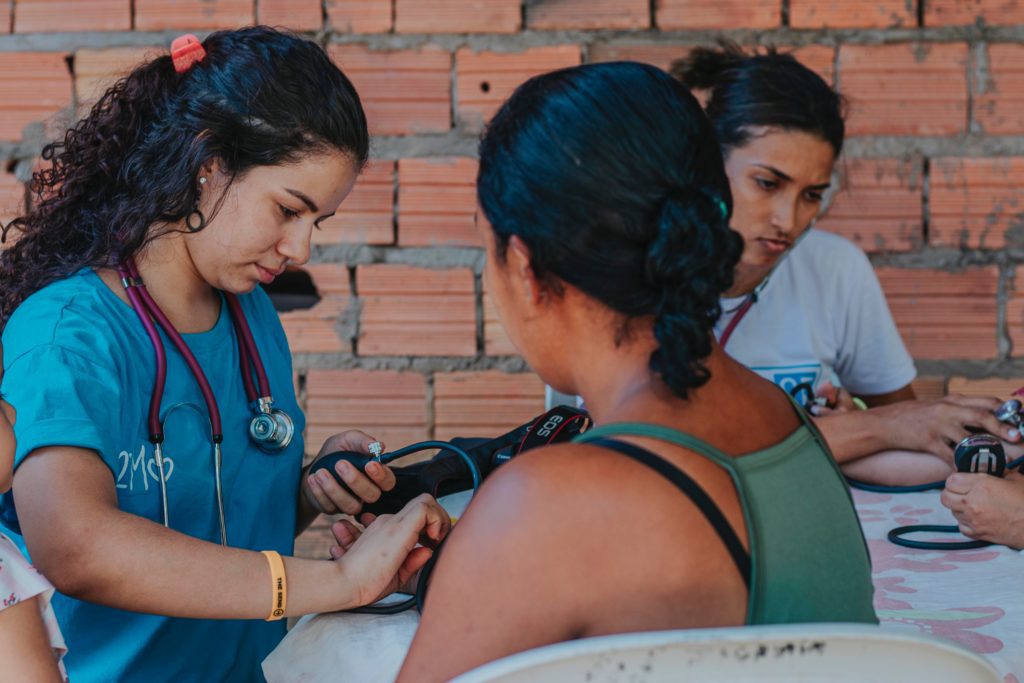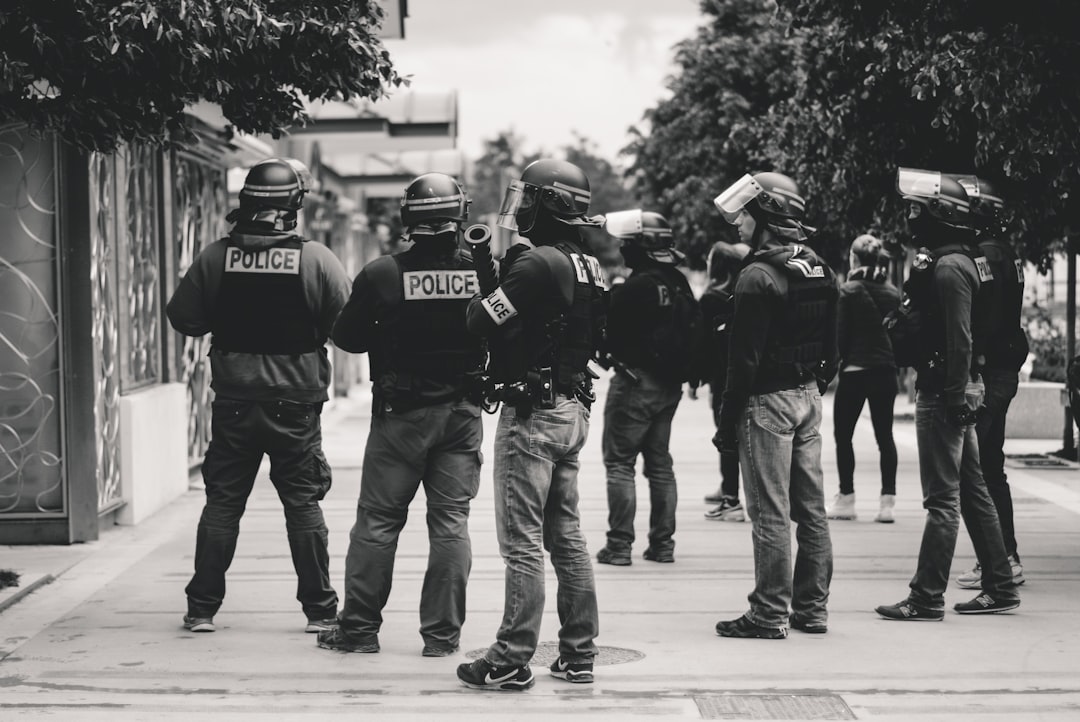We all know that nurses are the backbone of the medical community, but are nurses first responders?
Contrary to popular belief, nurses aren’t just medical professionals holed up inside a hospital. They play a vital role in emergency preparedness and response planning.
In this blog post, we’ll take a look at what nurses do during emergencies and how they work with other first responders to ensure everyone is safe and taken care of.
What Is A First Responder?
A first responder is an individual who is trained to provide emergency medical response and support in the event of an accident or natural disaster.
First responders are typically the first on the scene of an incident and are responsible for stabilizing patients and providing them with basic medical care until more specialized help arrives.
In many cases, first responders are also responsible for evacuating patients to safety and providing them with emotional support during a traumatic event.
First responders are typically police officers, sheriff deputies, paramedics, EMTs, or firefighters.
First, responders undergo extensive training in order to be prepared for the challenges of their job, and they must be able to think quickly and act decisively in order to save lives.
Are Nurses Considered a First Responder?
Nurses play a vital role in the medical field, providing care and support to patients across a variety of settings.
In the hospital setting, nurses are often the first point of contact for patients, and they play a key role in providing care and guidance.
However, nurses are not considered first responders, as they are not the first to arrive at an emergency that arises outside the hospital.
Additionally, at the hospital, doctors are the ones who diagnose and direct treatment. This division of labor is essential to ensuring that patients receive the best possible care.
Nurses provide a unique and invaluable perspective on patient care, and their expertise is essential to providing quality care in the hospital setting.
In either case, it is important to remember that nurses play a vital role in the medical response to any emergency situation.
How Do Nurses and First Responders Work Together?
First responders, such as police officers and firefighters, are often the first on the scene of an accident or emergency.
They are trained to provide basic medical care and to stabilize patients until they can be transferred to a hospital.
Nurses also play a vital role in patient care, providing more comprehensive medical treatment and support.
By working together, nurses and first responders can ensure that patients receive the best possible care.
First responders are typically responsible for initial patient assessment and triage. They will assess the severity of the patient’s condition and decide whether they need to be transported to a hospital immediately or if they can be treated on scene.
Nurses also conduct patient assessments, but they are able to provide more thorough and comprehensive care. For example, nurses can start IVs, administer medication, and provide emotional support.
First responders and nurses often work side by side in the field, providing care for patients who need it most. By working together, they can ensure that every patient receives the best possible care.

Do Nurses Have The Same Training As Paramedics And EMTs?
There are many similarities between the training that nurses, paramedics, and EMTs receive.
All three groups learn how to assess and treat patients, how to control bleeding, and how to administer CPR.
However, there are also some important differences in the training that these groups receive. Nurses receive the most extensive training, spending four years in college to earn their degree.
Paramedics and EMTs receive less formal training, spending only a few months in an accredited program.
As a result, paramedics and EMTs have less medical knowledge than nurses and are not able to provide comprehensive care.
In addition, nurses are required to complete continuing education courses on a regular basis. This ensures that nurses are always up-to-date on the latest medical advances.
The Challenges A Nurse Face When Dealing With Difficult Patients?
As a nurse, you will inevitably come across patients who are difficult to deal with.
Whether they are angry, disoriented, or just plain uncooperative, these patients can make your job much harder than it needs to be.
Luckily, there are a few strategies you can use to deal with difficult patients. First, try to remain calm and professional at all times.
This can be difficult when the patient is yelling or being belligerent, but it is important to maintain your composure.
Second, try to understand where the patient is coming from. They may be scared, frustrated, or in pain.
If you can empathize with their situation, it will be easier to deescalate the situation. Finally, be assertive but respectful.
It is important to set boundaries with difficult patients, but you also don’t want to come across as condescending or dismissive.
If you can keep these things in mind, you will be better equipped to deal with any challenging patients that come your way.
The Importance Of effective communication between Nurses and First Responders
When it comes to responding to emergency situations, effective communication is essential.
Nurses and first responders need to be able to share information quickly and clearly in order to ensure that everyone is on the same page.
This can often be a challenge, as there may be a lot of noise and confusion in the environment.
However, there are several ways that nurses and first responders can improve their communication.
For example, clear and concise language should be used, and all team members should be aware of the chain of command.
In addition, regular training sessions can help to ensure that everyone is familiar with the latest procedures.
By communicating effectively, nurses and first responders can ensure that they are better prepared to handle any situation that arises.
What Can Nurses Do When Confronted With a Combative Patient Brought into The Hospital By a First Responder?
Working with combative patients can be challenging for nurses. These patients may be aggressive, violent, or disruptive and pose a threat to both themselves and others.
As a result, nurses must take extra precautions when caring for these patients.
This can include using personal protective equipment, maintaining a safe distance, and constantly being aware of the patient’s movements.
In addition, nurses must be prepared to de-escalate the situation if the patient becomes agitated.
While working with combative patients requires additional precautions, it is important to remember that these patients are often suffering from a mental illness or are in pain.
As such, nurses must treat these patients with compassion and understanding.
Although there are some challenges associated with working with combative patients, nurses play an essential role in providing care and support.
Conclusion
Nurses play a critical role in the healthcare system, providing vital support to patients and medical staff alike.
They are often the first point of contact for patients, and their compassionate care can make all the difference in a person’s experience.
Nurses also play an important role in supporting the work of doctors and other medical professionals.
They collect patient information, assist with procedures, and provide essential guidance and care.
In many ways, nurses are the backbone of the healthcare system, and their skills and dedication are invaluable.
Although they may not be first responders, nurses play a vital role in ensuring that patients receive the best possible care.
Read More…
How to Buy SafeMoon on BitMart: A Step-by-Step Guide
How Safe is the 30093 Zip Code in Norcross, GA?






